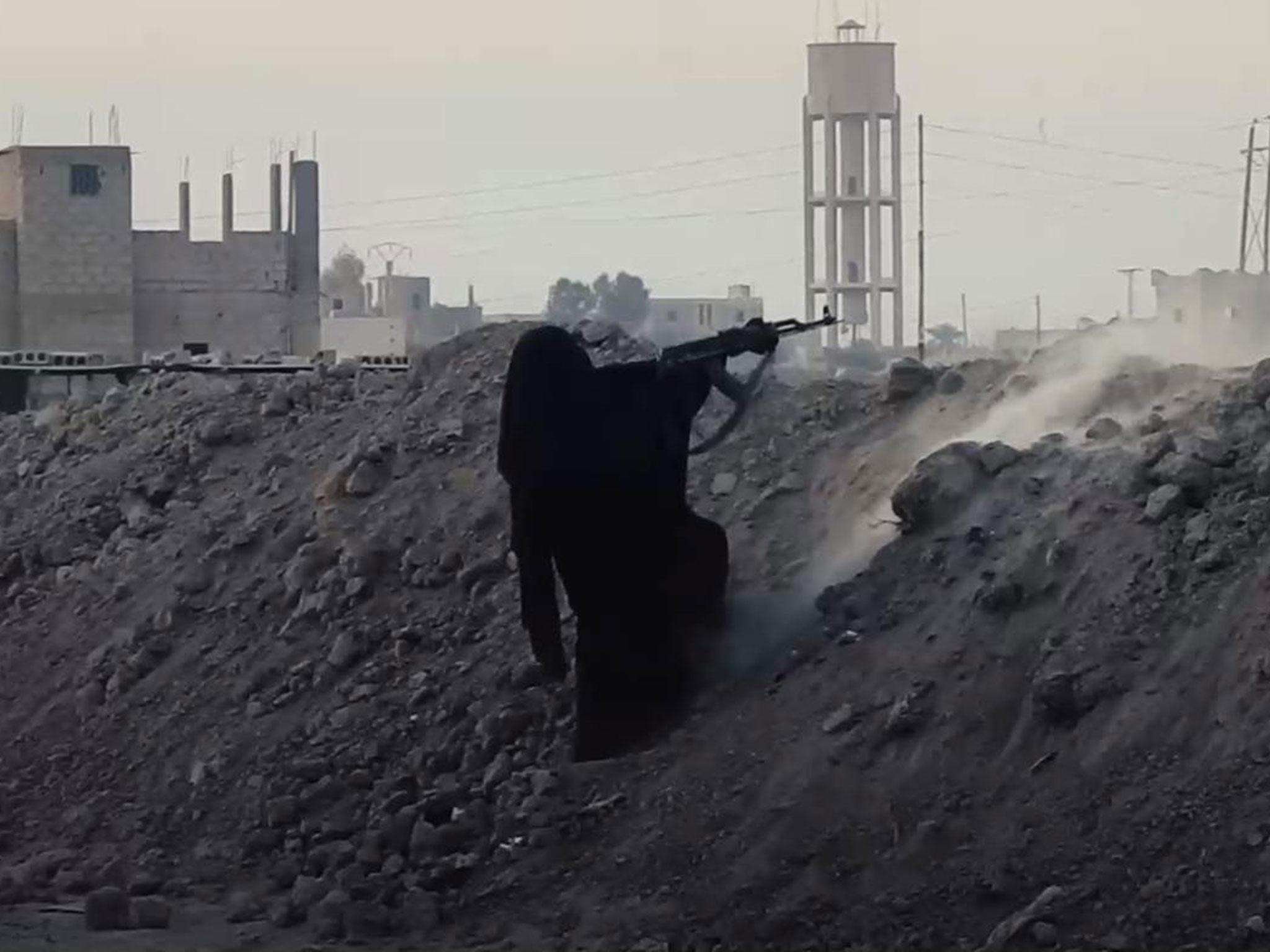Bodyguard's Nadia shows the danger of underestimating female jihadis
Security experts have long warned of casting all female extremists as unwilling victims coerced by male terrorists
Your support helps us to tell the story
From reproductive rights to climate change to Big Tech, The Independent is on the ground when the story is developing. Whether it's investigating the financials of Elon Musk's pro-Trump PAC or producing our latest documentary, 'The A Word', which shines a light on the American women fighting for reproductive rights, we know how important it is to parse out the facts from the messaging.
At such a critical moment in US history, we need reporters on the ground. Your donation allows us to keep sending journalists to speak to both sides of the story.
The Independent is trusted by Americans across the entire political spectrum. And unlike many other quality news outlets, we choose not to lock Americans out of our reporting and analysis with paywalls. We believe quality journalism should be available to everyone, paid for by those who can afford it.
Your support makes all the difference.“You all saw me as a poor, oppressed Muslim woman. I am an engineer. I am a jihadi.”
The words delivered the last twist in BBC’s Bodyguard series, revealing the seemingly meek Nadia to be a terrorist mastermind and expert bomb maker.
Her character’s transformation sparked fierce debate on social media, where some of the show's 10.9 million viewers accused writer Jed Mercurio of playing into Islamophobic tropes.
But it mirrors warnings long sounded by security experts over the dangers of casting all female extremists as unwilling victims coerced by male terrorists, or “jihadi brides” living out a perverse romantic dream.
Hundreds of women are believed to have travelled from Europe to Isis’ territories in Syria and Iraq since the group declared its “caliphate” in 2014, where several became key recruiters and radicalisers.
Women have also attempted to launch terror attacks in their home countries, including the UK’s first-known all female jihadi cell, who were jailed earlier this year.
Safaa Boular was just 16 when she started a plot to attack the British Museum, passing it on to her sister after she was detained for trying to travel to Syria.
Prosecutors said that while her foreign fighter boyfriend – Naweed Hussain, from Coventry – “had undoubtedly done much to encourage Boular in these plans, the intention underlying those plans was always hers”.
Research by the Royal United Services Institute for Defence and Security Studies (RUSI) found that women were attracted to Isis territories by complex factors including a rejection of Western feminism, contact with recruiters, jihadi ideology, and the chance to be part of something “new, exciting and illicit”.
Emily Winterbotham, the report’s co-author, said the use of the term “jihadi bride” to describe all female Isis members was reductive.
“Most people we interviewed believed women had been lured over to Isis by men, social media and marriage, with the men being the bad ones,” she told The Independent last year.
“There’s an implied rationality around male radicalisation and passivity around women … but the decision-making process of these individuals isn’t only about being manipulated and brainwashed – there’s a clear rationale.”
British women are among some of the most prominent online radicalisers and propagandists, including the “White Widow” Sally Jones, Londoner Khadijah Dare and Aqsa Mahmood, a former Scottish university student who has been put under international sanctions for her role as an online recruiter.
Under the online pseudonym Umm Layth, she operated now-deleted social media accounts and blogs calling for terror attacks, romanticising life under Isis and issuing detailed instructions for women wishing to travel to its territories.
While initially positioning female members in an ideological role, and calling on them to give birth to the next generation of fighters, Isis has since called for them to fight and launch attacks.
“Today, in the context of the war against the Islamic State, it has become necessary for female Muslims to fulfil their duties on all fronts in supporting the mujahedeen in this battle,” said an article in its Arabic propaganda newspaper last year.
Then in February, a video emerged on Isis propaganda channels appearing to show women fighting on the frontlines for the first time, wielding AK-47s while wearing full veils.

The footage followed reports of female Isis fighters, snipers and suicide bombers in battles including Deir Ezzor and Mosul, while terrorist groups including Boko Haram and al-Qaeda have also deployed women in attacks.
Nikita Malik, director of the Centre on Radicalisation and Terrorism at the Henry Jackson Society, said many of the 900 people who have travelled from Britain to Syria and Iraq are women.
“Some of them have self-radicalised, some of them have converted and they very much have the same kind of drive that men would to leave this country and go and join a terrorist organisation,” she added.
“They’re attracted by the same things and it’s often more disturbing when they try to take their children with them.
“We do overlook it because we very much come from a perspective in the security world that women are more vulnerable.
“In some cases they are, but there is a danger in underestimating them.”

Join our commenting forum
Join thought-provoking conversations, follow other Independent readers and see their replies
Comments